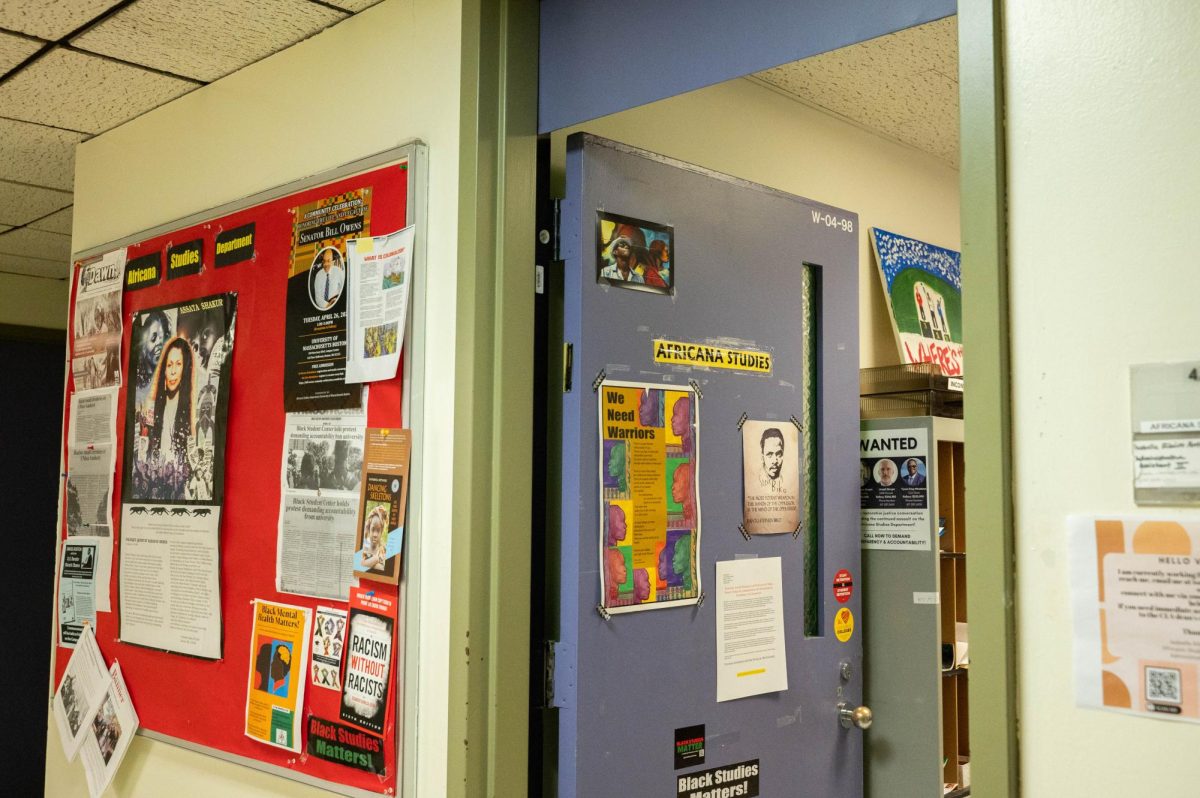It’s no secret that in America, there has been an erasure of Black contributions throughout history. This is often due to censorship in the classroom and restrictions on what can and can’t be taught. Significant leaps have been made to spread the knowledge of Black history to Americans, but with every step toward diverse education comes another bill shutting it down. In a country built on freedom and escaping persecution, the censorship of history is, and always will be, unconstitutional.
UMass Boston, unfortunately, is not exempt from this censorship despite being in Massachusetts, a state renowned for its “progressive” legislation. “Massachusetts is not Florida,” wrote attorney John Pavlos in a letter written to detail the discrimination faced by the Africana Studies department. This letter comes after all three—the only three—full-time faculty in the department went to the Massachusetts Commission Against Discrimination citing retaliation and discrimination by the administration.
One member of the Africana Studies department faculty, Dr. Jemedari Kamara, detailed some of these injustices. “They came to me, told me I had to cut 30 percent of our sections taught by the [non-tenure-track] faculty. That’s all we have is NTT faculty,” said Kamara. “And if I didn’t, I would be brought up on disciplinary charges for insubordination.”
In a school like UMass Boston that prides itself on promoting anti-racism, it may be shocking to hear how much anti-Blackness goes on behind the scenes. Kamara also says that the administration spent $250,000 to hire a private firm to investigate him and write a report that “no one in the university has seen.” For a school that claims to be setting the framework for inclusion and diversity, this news is revolting in many ways.
As a student at UMass Boston, I’m ashamed to be standing for a school that presented a façade of inclusion not only to me, but to faculty and sponsors. How can an institution claim to be anti-racist and be building a better racial climate when the condition of its Africana Studies department is worsening by the day? It’s contradictory and worrisome for the future of the school.
At times, it appears as though the administration doesn’t care. I’ve seen plenty of the videos that Chancellor Marcelo Suárez-Orozco requests to be played before events, but never him. These videos are one of the reasons administrators cited when they brought disciplinary charges down against Kamara; in 2023, he didn’t play one before an event. This, among other retaliatory acts toward the faculty, is why it’s so important to be educated on Black contributions to the university and to the world around us.
Some Americans misunderstand the premise of teaching Black history and the Black Lives Matter movement, citing it as racist against non-Black people. The point of uplifting Black Americans is not to push anyone else down, but to remind people of the significant contributions made by Black people in history that have gone erased. Everyone should be learning Black history because, whether you like it or not, Black people play a key role in everyone’s history—to erase those contributions is unjust.
The censorship at UMass Boston and in the United States is why people, myself included, feel as though we are going backward as a society. Marginalized groups have fought hard for years to make their voices heard and to have the same rights as everyone else, only for current-day policymakers to come through and repeal it.
This injustice can’t stand in a public university praised for international diversity. There’s a clear misunderstanding from the university of what it means to commit yourself to being anti-racist. Nowhere does it include tearing apart the lives of the very faculty that set the groundwork of UMass Boston’s anti-racism commitment. Don’t be afraid to hold authority figures accountable. This is the time to set an example of what it means to commit to anti-racism, because it’s clear that the meaning has been misconstrued.



